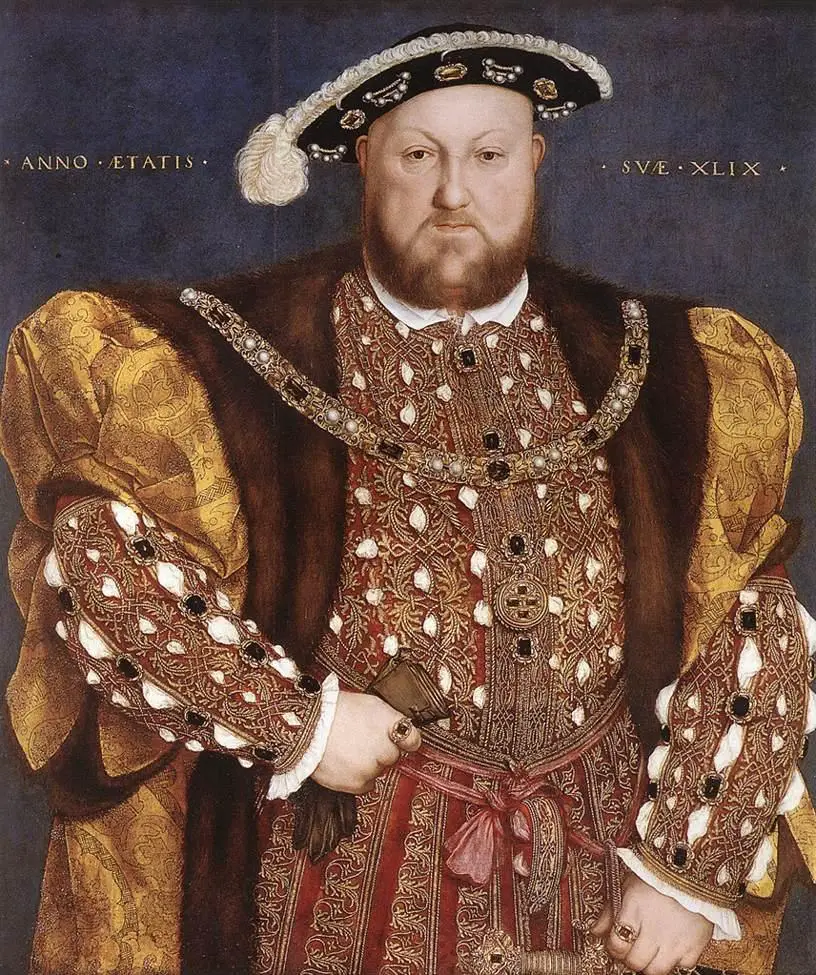In today's Claire Chats, I'm commemorating the anniversary of Queen Elizabeth I's birth on 7th September 1533 with a video looking at her achievements and her weaknesses and the downsides of her reign. Please do share your views as comments below.
You can read about Elizabeth I's birth in the article 7 September 1533 - The birth of Elizabeth I and find out more about the queen and her reign on our Elizabeth I Resources page.
Sources and Further Reading
- 10 Major Accomplishments of Queen Elizabeth I of England
- Accomplishments of Queen Elizabeth I
- Elizabeth I: An Overview
- Henry VIII and Elizabeth I: Pro and Con
- Elizabeth I, J P Sommerville
- "Greater Themes for Insurrection's Arguing": Political Censorship of the Elizabethan and Jacobean Stage by Janet Clare
- Tudor Literary Censorship by Cyndia Susan Clegg
- Censorship in Renaissance England: The Fate of Edmund Spenser by Andrew Hadfield



Elizabeth achieved a lot as a woman and Queen but it is a myth that her reign was a golden age and it is only opinion that she was the greatest monarch, not a fact. A poll in the media or on television is hardly scientific.
She achieved one thing, she survived what others may well have failed to live through. She faced a number of revolts and plots, real and imagined, she had a good spy network which helped to prevent them, she went to the Tower, justifiably so, but came out alive, having talked her way out of trouble, she saw the throne, in spite of the stain of being illegitimate and cursed by every foreign monarch, she faced down Spanish invasion and she oversaw a huge propaganda machine which gave us the fine portraits of Elizabeth I we have today.
Her reign saw some of the most flamboyant houses of the age being built, a flourishing of art and music and the theatre, of literature and expansion into the new World. However, she also sponsored piracy and plunder from the territory of Spain, causing the war which led to the Spanish Armarda, which the winds of the Irish sea, not Elizabeth defeated. This was not the largest defeat of a rival at sea, although it is celebrated as such and was a grand victory. It was also a lucky escape. Had the Spanish actually managed to pick up their troops and land we were not as well equipped as the propaganda says and it was also a close run thing at sea. Afterwards thousands of sailors died from starvation and were not paid, despite the country being a lot richer than it had been for many years. The crown got itself out of debt by 1574 but the country was in crisis again at the end of her reign. She caused problems in Ireland and her attitude towards the succession did her no favours. Although her religious settlement attempted to please both sides, the paranoia of her spy ring meant that no peace was possible as did the Papal Bull in 1572. Two northern rebellions had already resulted in wide spread panic in her Government and the put down of them was especially harsh. This caused the above Bull. Now, however, it was treason just to be a Catholic priest as well as to hide them or to convert. Those families who didn’t attend Church also faced fines which accumulated if you didn’t pay them and were enforced on a monthly basis. It led to more discontent and a certain type of Catholic gentleman, young and rash tended to be those who rebelled or plotted. The capture of Mary, Queen of Scots in 1569 who fled to England having lost her throne, made a focus for those plots and made things worse for Elizabeth.
The ordinary people gained access to the new theatres being built around London and the Midlands and to the new pool of talent who came and sprouted an outpouring of literature and entertainment. We associate names like William Shakespeare, Francis Bacon (although he is more associated with James I) Christopher Marlowe and so on with Elizabeth I, for their careers began in her reign. We also associate the names of household explorers, like Drake, Raleigh and Hawkins, with Elizabeth, although in reality, Raleigh was the only real explorer, the others pirates and slavers, government thieves and exploration was political for them. Elizabeth sponsored trade, but she also sponsored unfair franchises. Trade flourished, but trade had always flourished thanks to our wool trade.
Her reign was relatively stable but it was not totally peaceful or prosperous and prosperous for whom? There was anything but peace in Ireland and she sent troops to intervene in Holland, being ruled by Spain. Her defeat of the Armarda didn’t end the conflict with Spain who had two more attempts at invasion, but the state of war lasted for four decades. It was James I who ended war with Spain and Ireland, at least for a time. Perhaps her best achievement ironically was preparing James as her heir, even though she never named him until her last day’s, but she kept an eye on him and he had support at Court. She also gave him several grants of money. Elizabeth dodged the various candidates for her crown with skill and she was a clever diplomat and talker. Her speeches are well worth a read and are quite rousing. She played off the male factions at Court with wit and intelligence and her use of several languages shows her to be well educated and learned. She could have outwitted the Devil had he visited her. She was very clever when trouble arose and could talk her way around anything. She kept a balanced Court and she flattered and accepted flattery. Elizabeth used her dress and fashion as a flamboyant political tool as well as to wow and make a statement.
Elizabeth can also be criticised for what might seem like over reactions to the young cousins who married without her permission, being cruel to Catherine and Mary Grey, but they did marry without her leave and many saw Catherine as heir to the throne when a crisis arose in 1562. Elizabeth fell ill with the smallpox and almost died. She later learnt that her cousin had married another cousin, Edward Seymour and that Catherine was pregnant. She placed them in the Tower, where having had a son, the couple managed to use it as a love nest and Catherine became pregnant again. Although Elizabeth released them and annulled the marriage, they were separated and Catherine became very ill. Her husband was not allowed to visit and she died aged only twenty seven. The youngest sister, Mary, fell in love and her husband was put in the Fleet prison, despite being of much lower status than Mary. They were separated and Elizabeth was judged to be too hard, but other monarchs acted in similar ways when defied in this way by a relative and heir. James, for example, imprisoned or confined Arbella Stuart when she married another relative, again for love but it was all seen as a plot and James took steps to preserve his new crown. Elizabeth may have said the same thing.
While I don’t believe this was a golden age, or in fact that any era was, it certainly had some good highlights and she did well to rule for a long time and to gain the reputation as a great ruler, even if the reality was somewhat different.
I forgot to say that Elizabeth was a shrewd and resourceful politician, but like all strong female leaders and rulers she was both reviled and praised for her political awareness. Her greatest achievement was probably her survival and reign for almost 45_years, especially considering so many people didn’t want her on the throne and her enemies who tried to remove her.